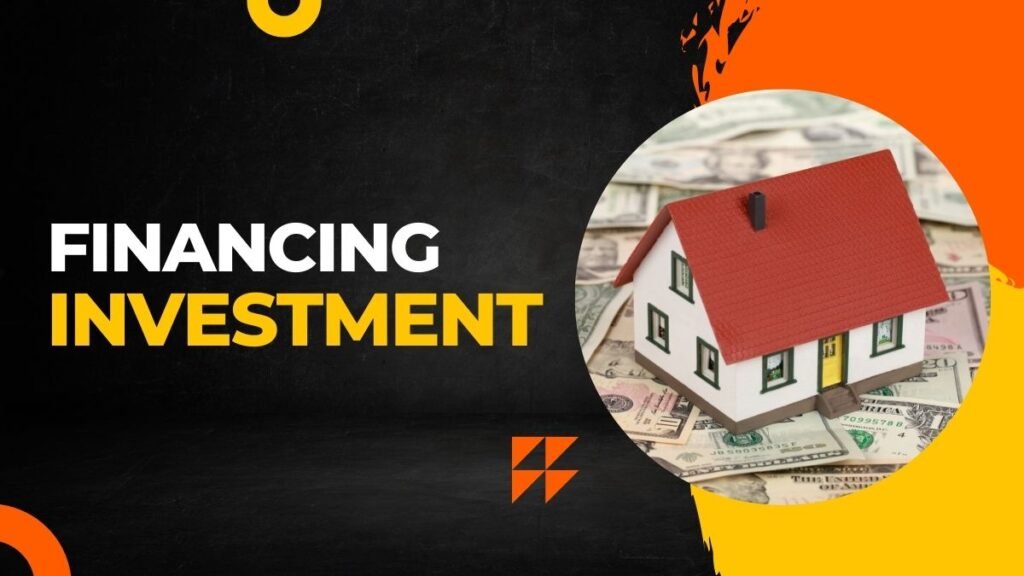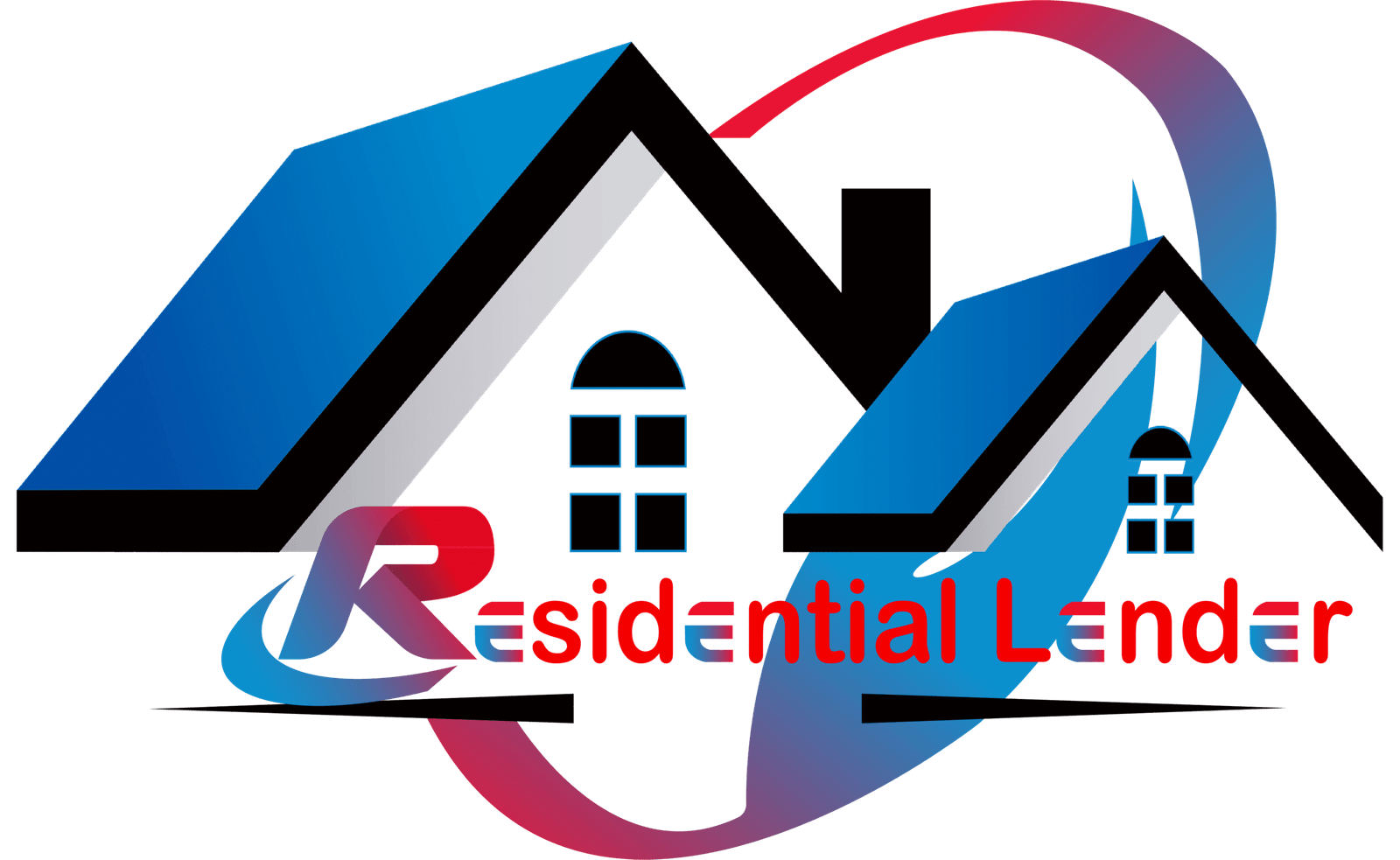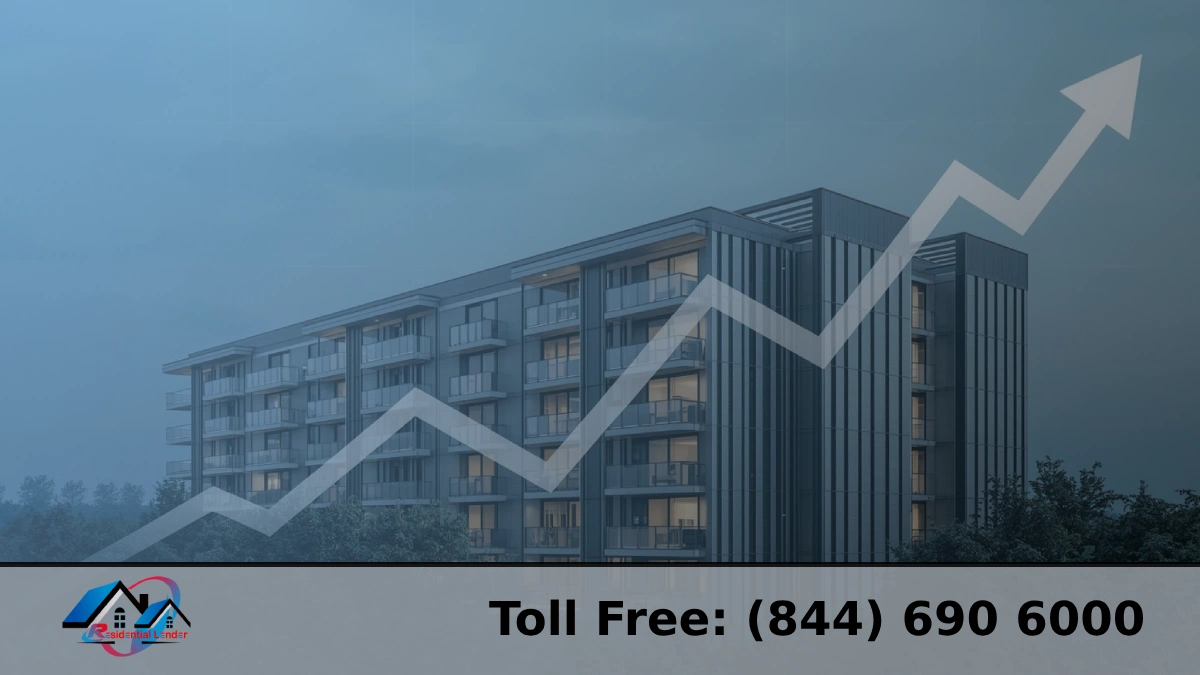Did you know that 90% of aspiring real estate investors get stuck in the starting phase, wondering where to begin? The dream of financial freedom through real estate can feel overwhelming, especially when choosing between residential and commercial properties.
That’s where ResidentialLender.net comes in. We’re a team of experts guiding investors through the complexities of financing income-generating commercial properties.
Let’s untangle the first hurdle: understanding the critical differences between residential and commercial real estate. Here, we’ll focus on multi-family properties (buildings with five or more units), single-family rentals, and townhouses, which fall under the residential umbrella.
Setting Your Sights Goals: Real Estate Investment Property

Before diving headfirst into the exciting world of real estate investment, take a moment to map your treasure chest. Just like any journey, a clear destination (your investment goals) is crucial for choosing the right path (property type).
Why Goals Matter
Imagine setting sail without knowing your final port. You might end up somewhere beautiful, but it might differ from where you truly intended to go. Setting clear investment goals acts as your compass, guiding you toward properties that align with your financial aspirations.
Goal Examples
- Cash Flow King: Your primary desire is consistent monthly income. Rental properties, particularly single-family homes, can generate steady cash flow to cover your expenses and provide additional income.
- Appreciation Architect: Maybe your focus is on long-term wealth building. Multi-family properties could be a strategic choice with their potential for significant value appreciation over time.
- Retirement Refuge: Building a robust retirement portfolio might be your ultimate goal. Investing in income-generating properties can provide a reliable source of income to supplement your retirement savings.
Goals & Property Selection
Your goals will directly influence the type of property you choose. For instance, if consistent cash flow is your priority, a single-family rental property with a manageable mortgage and potentially lower vacancy rates might be ideal. On the other hand, if long-term appreciation is your focus, a multi-family property requiring more management could offer more significant potential for value growth over time.
Remember, your goals are unique. By defining them clearly, you’ll be well-equipped to navigate the exciting world of real estate and choose properties that propel you toward your financial dreams.
Knowing Your Turf: Understanding the Market

Just like any successful explorer wouldn’t venture into uncharted territory without a map, a savvy real estate investor would only jump into a purchase with thorough market research. This research forms the foundation for making informed decisions and maximizing your return on investment.
So, what exactly should you be looking at? Here’s a treasure trove of factors to consider:
- Local Rental Trends: Understanding rental rates, average lease lengths, and tenant demand in your target area is crucial. Are rents trending upward, stagnant, or decreasing?
- Vacancy Rates: A high vacancy rate translates to difficulty finding tenants, impacting your cash flow. Aim for areas with historically low vacancy rates.
- Job Market Outlook: A thriving job market with steady employment indicates a higher likelihood of finding qualified tenants and potentially increasing rental rates.
- Property Values: Research historical and projected property values in your target location. Are values expected to appreciate significantly over time, or is the market relatively stable?
Luckily, unearthing this valuable information doesn’t require venturing into the wilderness alone. Here are some resources to equip you:
- Local Realtor Associations: These associations often publish market reports and data on regional trends.
- Online Real Estate Databases: Many online platforms offer market insights and rental statistics for specific neighborhoods.
By dedicating time to market research, you’ll understand the landscape clearly, allowing you to identify properties with high investment potential. In the next chapter, we’ll delve deeper into the specifics of financing commercial income-generating properties.
The Numbers Game: Financial Analysis Before You Buy
Remember that famous saying, “Numbers don’t lie”? Well, this rings especially true in the real estate investment world. Before you get swept away by a perfect-looking property, financial analysis is your knight in shining armor, ensuring you make a sound investment decision.
Why is crunching the numbers so crucial? It paints a clear picture of a property’s potential profitability. Here are some key financial metrics you don’t want to miss:
- Purchase Price: This is the upfront cost of acquiring the property.
- Rental Income Potential: Research fair market rents in your target area to estimate the income you can generate from the property.
- Operating Expenses: Factor in all ongoing costs associated with the property, such as property taxes, insurance, maintenance, and property management fees.
- Capitalization Rate (Cap Rate): This metric reveals the rate of return on your investment. It’s calculated by dividing the property’s net operating income (NOI) by the purchase price.
The good news? You don’t have to be a financial whiz to navigate this analysis. Numerous online tools and resources are available to help you crunch the numbers. Many of these resources offer free options to get you started.
You’ll gain the confidence to make informed investment decisions by dedicating time to financial analysis. You’ll be able to identify properties with potential solid cash flow, evaluate long-term appreciation prospects, and ensure your investment aligns with your overall financial goals. The next chapter will explore the exciting world of financing commercial income-generating properties!
Unlocking Your Investment: Financing with ResidentialLender.net

Now that you’re armed with a clear vision (goals), a well-researched map (market research), and a calculated game plan (financial analysis), it’s time to secure the key that unlocks your investment dreams: financing.
This is where ResidentialLender.net steps in as your trusted guide. We specialize in helping investors like you navigate the complexities of financing income-generating commercial properties.
Here’s how we make the process smooth and efficient:
- Correspondent Lender: We have strong relationships with a vast network of lenders, ensuring you get access to the most competitive rates and loan options for your specific needs.
- In-House Underwriting: Our experienced underwriting team expedites the loan approval, saving you valuable time.
- Traditional Loans: We offer a variety of conventional loan products tailored to commercial investment properties.
- Superbroker Capabilities: Our expertise extends beyond traditional loans. We leverage our super broker capabilities to explore alternative financing solutions for your unique requirements.
When financing commercial investment properties, there’s no one-size-fits-all approach. We offer a diverse range of loan options, including:
- Conventional Loans: For qualified borrowers, these loans typically offer attractive rates and terms.
- Fannie Mae and Freddie Mac Loans: These government-sponsored enterprises offer financing for multi-family properties under specific guidelines.
- SBA Loans: The Small Business Administration provides loan programs to support commercial real estate investment for small businesses.
- Bridge Loans: Short-term financing solutions to bridge the gap between buying and selling properties.
- DSCR (Debt Service Coverage Ratio) Loans: Focus on the property’s cash flow to qualify for financing rather than your income.
- Hard Money Loans: Fast and flexible financing options for quick acquisitions or properties requiring renovations.
- Business Line of Credit: Provides access to a revolving line of credit for ongoing property expenses or unexpected repairs.
- Term Loans: Fixed-rate loans with a set repayment period for long-term financing needs.
- Business Statement Loans: A business statement loan may be an option if your commercial property still needs to generate traditional income documentation.
Are you feeling overwhelmed by the options? Don’t worry! Our team of loan specialists is here to listen to your goals, understand your property, and recommend the most suitable financing solution for your investment journey.
Contact ResidentialLender.net today and schedule a free consultation with one of our specialists. Let’s turn your real estate investment dreams into a reality!
Beyond the Numbers: Property Selection – It’s Not Just About the Math
While financial analysis is the foundation of intelligent real estate investment, it’s part of the story. There are other crucial factors to consider before you fall in love with a property’s bottom line. Let’s explore some key elements of property selection:
Demographic Position of The Investment Property
They don’t call it a cliché for anything! The Property’s location significantly impacts its long-term value and tenant appeal. Here’s what to consider:
- Proximity to Amenities: Is the property near desirable amenities like schools, shopping centers, or public transportation? These factors play a significant role in attracting and retaining tenants.
- Crime Rates: A safe and secure neighborhood is essential for attracting quality tenants and maintaining property value.
- School Districts: Good school districts can be a significant deciding factor for families with children.
Considering the Property Itself
Refrain from being blinded by initial impressions. Look beyond the surface and evaluate the Property’s condition:
- Overall Condition: Is the property structurally sound? Are there any major repairs needed that could significantly impact your budget?
- Potential Maintenance Costs: Factor in the ongoing maintenance costs associated with the property type and age. Aim for a property with a manageable maintenance burden.
Planning for the Future: Your Exit Strategy
Every investment requires an exit strategy. How do you plan to cash out in the future? Here are two common scenarios:
- Selling the Property: If you plan to sell long-term, consider properties with high appreciation potential.
- Refinancing: If you want to build a long-term rental portfolio, consider properties that allow you to refinance and access the equity accrued over time.
By carefully considering these additional factors alongside your financial analysis, you’ll be well-equipped to select an investment property with strong potential for long-term success. Remember, ResidentialLender.net is here to partner with you throughout your investment journey. Call us today at (844) 690-6000 to discuss your financing options and unlock the door to your real estate goals!
Common Investment Property Mistakes (and How to Avoid Them):
The road to real estate investment success is paved with good intentions. Still, even the most enthusiastic newcomer can make missteps. Here are some common pitfalls to watch out for:
- Emotional Investing: Don’t let charm or nostalgia cloud your judgment. Stick to your numbers and long-term goals.
- Skimping on Inspections: A thorough inspection by a qualified professional can uncover hidden problems and save you from costly repairs.
- Underestimating Ongoing Costs: Factor in all expenses, including property management fees, maintenance costs, and vacancy periods, to ensure your cash flow remains positive.
- Neglecting Property Management: For multi-unit properties, consider hiring a professional property management company to handle tenant relations and maintenance issues.
Client’s Success Stories of ResidentialLender.net
At ResidentialLender.net, we’ve had the privilege of partnering with numerous investors who have achieved remarkable success through real estate. Here’s a glimpse (with permission, of course!):
- Sarah, a school teacher in Atlanta: Sarah leveraged an SBA loan to acquire a triplex close to a growing college campus. The property boasts high occupancy rates and steady cash flow, allowing Sarah to build wealth for her future.
- David, a young entrepreneur in Chicago: David used a hard money loan to secure a multi-unit apartment building in an up-and-coming neighborhood. After initial renovations, he could refinance with a traditional loan and unlock significant equity.
These are just a few examples of how our clients have used our financing solutions to achieve their real estate investment dreams. Are you ready to embark on your own success story?
Contact ResidentialLender.net today and let our team of specialists guide you on your real estate investment journey!
The Key to Unlocking Your Real Estate Dreams
Finding the perfect investment property requires a multi-step approach. We’ve explored the importance of setting clear goals, conducting thorough market research, and crunching the numbers to ensure financial viability. Beyond the numbers, we delved into property selection, considering location, condition, and your long-term exit strategy.
Remember, navigating the complexities of real estate investment doesn’t have to be a solo venture. At ResidentialLender.net, our team of experts possesses the knowledge and experience to guide you every step of the way. From financing options to underwriting expertise, we ensure your investment journey is paved with success.
Don’t wait any longer! Contact ResidentialLender.net today for a free consultation or pre-approval on your investment property financing. Let’s turn your real estate dreams into reality!
FAQs
What types of investment properties do you finance?
ResidentialLender.net specializes in income-generating commercial properties, likely including multi-family buildings, single-family rentals, and townhouses.
What loan options do you offer?
They mention SBA loans, bridge loans, DSCR loans, hard money loans, business lines of credit, and term loans.
What are the benefits of using ResidentialLender.net?
They likely highlight their wide range of loan options, correspondent lender status for finding the best fit, in-house underwriting for faster approvals, and expertise in commercial real estate investment.
What documents do I need to apply for a loan?
This would typically include tax returns, bank statements, and property details.
What are your credit score requirements?
This will vary depending on the loan program.
How long does the loan approval process take?
ResidentialLender.net mentions their in-house underwriting for potentially faster approvals, but the exact timeframe would depend on individual circumstances.
What factors should I consider when selecting an investment property?
They mention location, property condition, potential maintenance costs, and exit strategy.
How do I conduct market research for investment properties?
They could recommend resources like local realtor associations and online real estate databases.
What are some common mistakes new real estate investors make?
They might advise against emotional investing, skipping inspections, underestimating ongoing costs, or neglecting property management.








